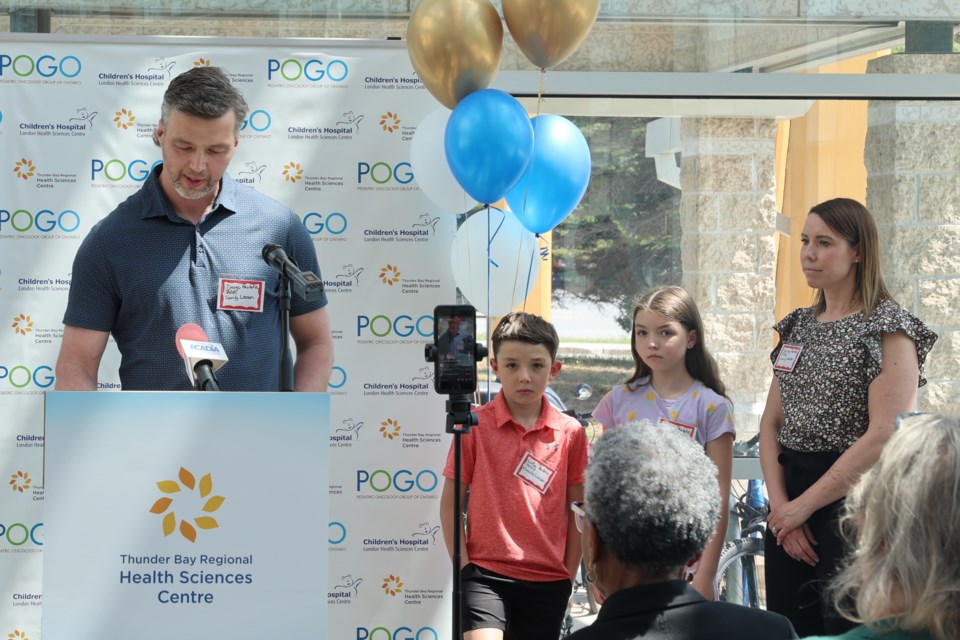THUNDER BAY – Children with cancer will now be able to stay closer to home while undergoing many treatments.
In collaboration with the Ontario Provincial Pediatric Oncology Group (POGO) and the Children’s Hospital at London Health Sciences Centre, Thunder Bay Regional Health Sciences Centre is expanding the POGO Satellite Program and the POGO Interlink Nursing Program locally.
Until now, many families had to travel to London for months of pediatric cancer treatment, an experience that brought significant emotional, financial, and logistical challenges.
Drago Pavletic, whose son Luke is a childhood cancer survivor, shared the emotional toll of having to leave his family behind while Luke had to travel to receive care.
“Our daughter stayed in Thunder Bay. It was very hard, especially for Luke because he didn’t understand why his sister wasn’t with us. Eventually, we were able to bring her to London, and she was a big help, seeing her made Luke so happy." he said.
“It's just, it's amazing to have this clinic here because now families can stay together and not be split up while their kids are getting their life-saving treatment".
The new programs aim to ease that burden by delivering high-quality pediatric oncology care in Thunder Bay, led by a local multidisciplinary team trained and supported to meet POGO’s standards.
“It’s really about recognizing that the journey is tough,” said Dr. Rhonda Crocker Ellacott, President and CEO of TBRHSC and its Research Institute. “Although childhood cancer is rare, the burden on families is incredibly difficult.”
The expanded POGO Satellite Program will offer a comprehensive range of services, including:
- Chemotherapy
- Blood and blood product transfusions
- Follow-up care
- Consultations
- Educational resources
- Central line management
- Blood specimen collection
- Imaging services (X-rays, ultrasounds, CT scans, MRIs)
- Medication administration
- Insuflon management
- Supportive care
“This is huge for Northwestern Ontario,” said Crystal Edwards, Director of Women and Children’s and Mental Health Programs at the hospital. “Previously, families had to travel to London, sometimes for up to nine months of treatment and follow-up care that could last years. That often meant splitting up families and missing work. Now, we can treat children right here.”
Edwards emphasized that the program will significantly improve access for families from outlying communities: “Travelling to Thunder Bay is far more feasible than going all the way to London. This will help families stay close together and preserve a sense of normalcy during a very difficult time.”
Thunder Bay now has a dedicated interlink nurse overseeing the satellite clinic, and all pediatric outpatient nurses are trained in chemotherapy administration. “That means we can treat children any day our department is open,” Edwards added.
Additionally, the POGO Interlink Nursing Program will provide families with a dedicated point of contact to help coordinate care and connect them with community and school-based supports.
Lauren Ettin, CEO of POGO, highlighted that localized care goes beyond treatment alone: “Kids can be home with their families, friends, and support systems. Cancer care for children doesn’t end when treatment ends, it extends into survivorship, often well into adulthood. This program supports families throughout that entire journey.”
